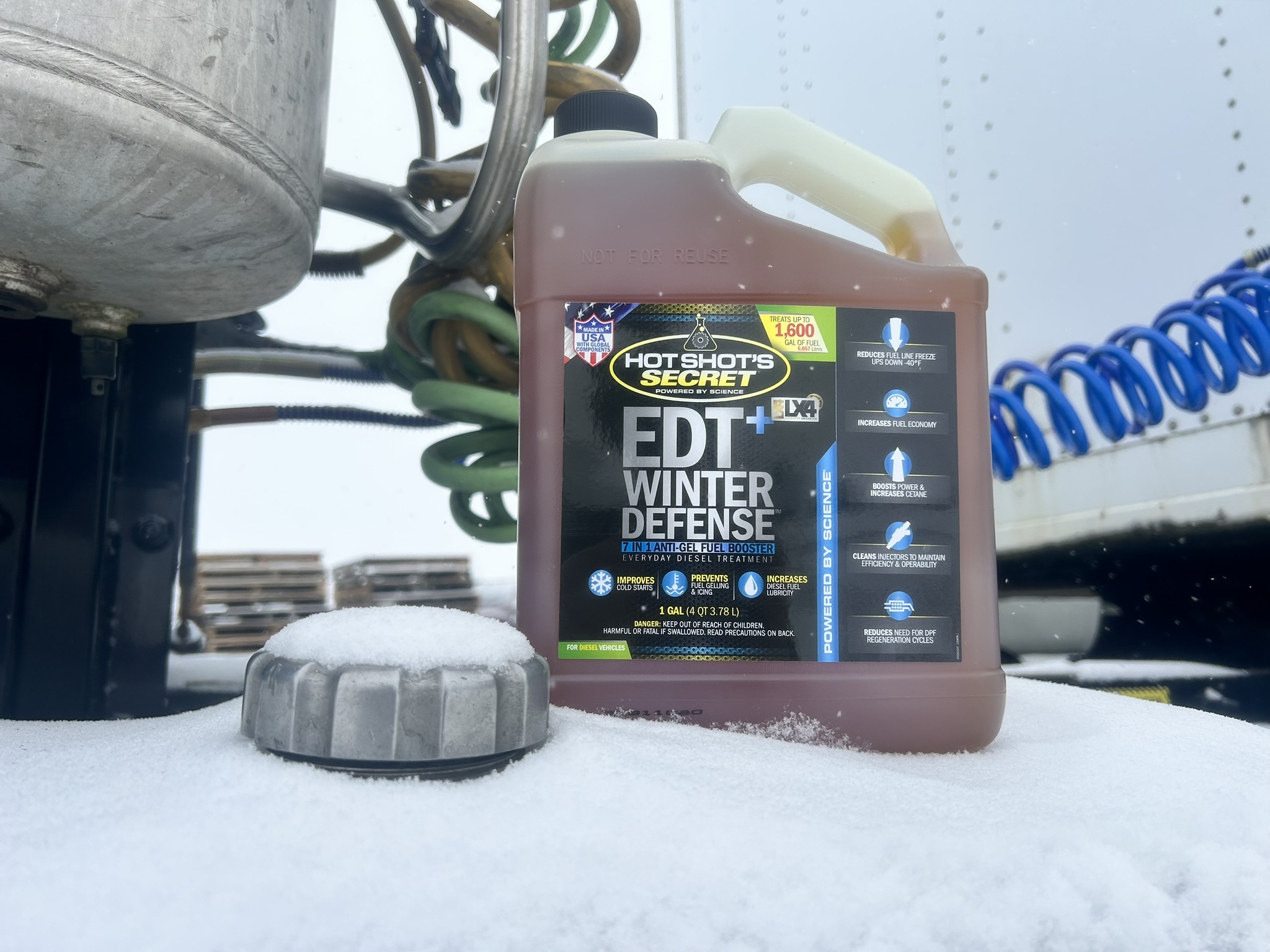
Published in Fleet Maintenance Magazine
It’s that time of the year again when cold snaps can break a fleet’s back if they’re not prepared. With respect to diesel fuel, freezing temperatures can severely impact the fuel itself, as well as pumps and lines. To find out how fleets can counteract the cold, we turned to Hot Shot’s Secret brand manager Josh Steinmetz, who was willing to reveal a few tips to keep fleets up and running when the mercury drops.
Fleet Maintenance: What are some common issues with diesel fuel systems in cold weather and how do they happen?
John Steinmetz: Certainly, cold weather can pose challenges for diesel fuel systems in fleets. Here are a couple of common issues associated with cold temperatures.
Gelling of diesel fuel: In cold temperatures, diesel fuel tends to gel, forming solid particles that can clog fuel filters and fuel lines. Diesel fuel contains paraffin wax, and as temperatures drop, the wax crystallizes and solidifies, leading to the formation of gel-like substances. These gelled particles can restrict the flow of fuel and cause operational issues in the fuel system.
Fuel filter icing: Moisture present in the fuel can freeze, leading to the formation of ice crystals in the fuel filter. Diesel fuel can contain small amounts of water, and when temperatures drop, this moisture can freeze, causing ice to accumulate in the fuel filter. This ice buildup can block the fuel flow and disrupt the normal operation of the engine.
Low fuel economy: One significant concern is the increased viscosity of diesel fuel in colder climates leads to higher friction within the engine components. This elevated viscosity can result in reduced fuel atomization, affecting combustion efficiency and overall engine performance. Moreover, the denser air in cold conditions can affect the air-fuel mixture, impacting combustion and contributing to decreased fuel efficiency.
FM: What is the impact on the fleet when you get diesel icing, gelling, and decreased fuel economy?
JS: When a fleet experiences diesel gelling, icing, and low fuel economy, the repercussions are multifaceted and significantly impact both the operational efficiency and economic viability of the fleet.
The occurrence of diesel gelling, characterized by solidified paraffin wax in cold temperatures, leads to clogged fuel filters and disrupted fuel flow to the engine. This results in poor engine performance, misfires, and potential engine stalling, necessitating immediate attention and unplanned vehicle downtime for repairs.
Concurrently, fuel filter icing exacerbates these issues, causing additional challenges in maintaining a consistent fuel supply to the engine. The cumulative effect is an increase in maintenance costs, as fleet operators must allocate resources to address these fuel-related complications, replace filters, and conduct repairs to restore optimal engine functionality.
Moreover, low fuel economy compounds the challenges by reducing the distance covered per gallon of fuel, leading to heightened fuel consumption and operational costs. The fleet’s overall efficiency is compromised, with vehicles covering fewer miles and experiencing delays in reaching their destinations. This not only creates additional expenses but also negatively impacts customer satisfaction, potentially straining relationships and tarnishing the fleet’s reputation.
FM: How can fleets mitigate these problems?
JS: To mitigate the impacts of winter diesel problems such as icing, gelling, and low fuel economy, fleet managers need to implement proactive measures, including using winter-grade diesel with appropriate additives, installing fuel heaters, conducting regular maintenance checks, and providing drivers with guidelines for fueling in cold conditions.
One option we offer is Hot Shot’s Secret EDT+ Winter Defense, a comprehensive fuel additive that not only prevents icing and gelling but also addresses low fuel economy. Its advanced formula contains cetane improvers, detergents, and lubricity agents, enhancing combustion efficiency, cleaning the fuel system, and providing overall engine protection and performance. This all-in-one solution simplifies the winter maintenance process for fleets, offering a convenient and efficient way to combat multiple winter-related challenges in a single product.
The emergency version is called Diesel Winter Rescue, which contains a militray-grade de-icer. The additve thaw fuel filters and re-liquify gelled fuel.
In cases of emergency gelling, fleets can turn to a diesel degelling product (like Hot Shot’s Secret Diesel Winter Rescue). This quick-response solution is specifically designed to reliquefy gelled diesel fuel, restoring fuel flow. Diesel Winter Rescue contains a high level of lubricity, addresses the lack of lubrication due to the low flow of diesel to the engine and mitigating the strain on the fuel system.
Proper preparation and preventative measures are crucial to minimizing the negative consequences of diesel gelling, icing, and low fuel economy on fleet operations. With the right plan in place, fleets can maintain profits even in the coldest of winters.


